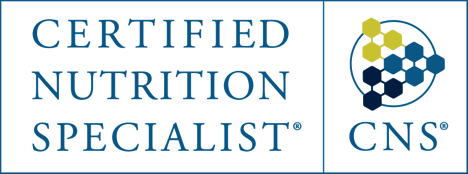Roni Enten Vissoker PhD
CNS, LDN
Individualized Biomedical Nutritionist


Home » Why addressing nutrition in autism is often missed
 Autism spectrum disorder (ASD) is a complex neurodevelopmental condition that affects millions of individuals worldwide. While research on the causes and treatments for ASD has made significant progress in recent years, there remains a critical gap in addressing the nutritional needs of individuals with ASD. Here’s why more practitioners may not focus on assessing nutrition in autism, and why this is often missed:
Autism spectrum disorder (ASD) is a complex neurodevelopmental condition that affects millions of individuals worldwide. While research on the causes and treatments for ASD has made significant progress in recent years, there remains a critical gap in addressing the nutritional needs of individuals with ASD. Here’s why more practitioners may not focus on assessing nutrition in autism, and why this is often missed:
Lack of Training and Awareness: Many healthcare professionals, including doctors, may not have received specialized training in autism and nutrition. This lack of training can lead to a lack of awareness about the importance of nutrition in managing ASD symptoms and overall health.
Time Constraints: Doctors often have limited time during appointments to address all aspects of a patient’s health, including nutrition. This can make it difficult for doctors to assess nutritional status and provide personalized dietary recommendations for individuals with ASD.
Focus on Symptoms Management: Given the complexity of ASD and the wide range of symptoms individuals may experience, doctors may focus on managing specific symptoms rather than addressing underlying nutritional issues that may contribute to those symptoms.
Focus on Behavioral and Pharmaceutical Interventions: The predominant focus in autism treatment has historically been on behavioral and pharmaceutical interventions. While these approaches can be beneficial, they often overlook the potential impact of even basic nutrition on autism symptoms and overall well-being.
Complexity of Nutritional Needs: Individuals with ASD may have unique nutritional needs and challenges. Some individuals may have sensory sensitivities that affect their food preferences, while others may have gastrointestinal issues that impact nutrient absorption. Addressing these needs requires a thorough understanding of the individual’s medical history, dietary habits, and nutritional status and the experience of a seasoned nutrition professional.
Lack of Standardized Guidelines: Unlike other medical conditions where there are established guidelines for nutrition assessment and intervention, there is a lack of standardized guidelines for nutrition assessment in ASD. This can make it challenging for doctors to know where to start and how to tailor interventions to meet the individual’s needs. Fortunately, with the world of precision medicine and nutrition that is rapidly expanding, there is greater acceptance of the importance of individualized approaches and personalized protocols to treat the individual and his/her uniqueness.
Despite these challenges, there is growing recognition of the importance of autism nutrition in treatment. As research continues to uncover the links between nutrition and ASD, it is essential for healthcare professionals to prioritize nutrition assessment and intervention as part of a comprehensive treatment plan for individuals with ASD. For parents of a child with autism, individualized biomedical nutrition provides powerful way to address your child’s unique nutritional needs, help ease challenging symptoms and achieve better overall health and well-being, improving their quality of life.
Comments Off on Why addressing nutrition in autism is often missed